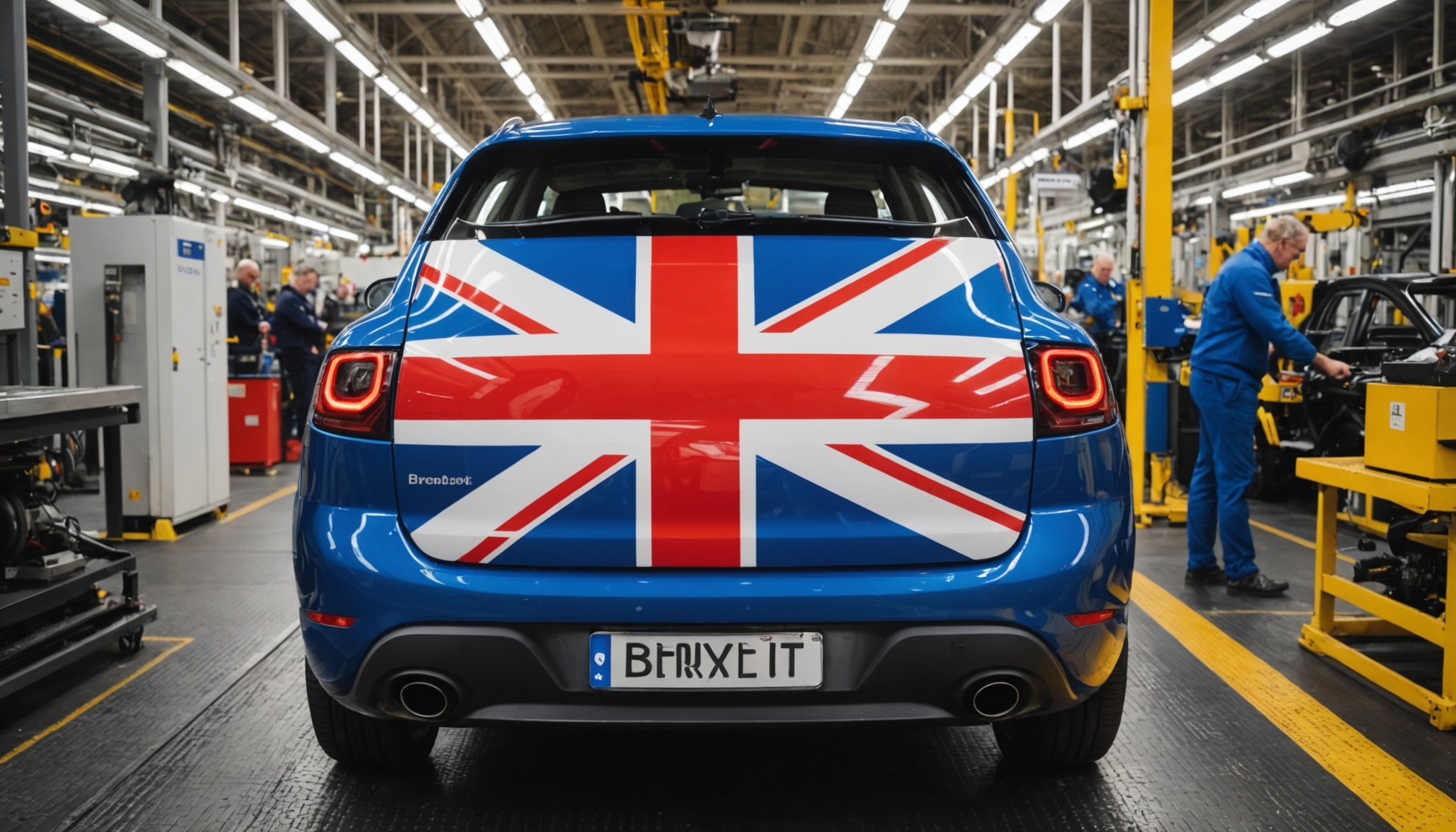Brexit—a term that has dominated headlines, debates, and discussions for years—is finally a reality. As we navigate the post-Brexit landscape, many industries are feeling the ripples of this monumental geopolitical shift. Among them, the UK automotive industry stands as a significant player grappling with the changes brought about by this political upheaval. In this article, we explore the multifaceted implications of Brexit on the automotive sector, looking at trade agreements, manufacturing, market impacts, and more. We aim to provide a comprehensive overview that caters to your curiosity and informs your understanding of this critical issue.
The Global Trade Landscape for UK Automotives Post-Brexit
As the United Kingdom establishes new trade deals, the automotive industry finds itself at a crossroads. The transition from an EU member to an independent trading nation presents a host of challenges and opportunities for vehicle manufacturers and stakeholders.
Previously, the UK’s automotive sector enjoyed seamless access to the European single market, with cars and auto parts flowing freely across borders. However, Brexit has introduced a new era of trade negotiations, with tariffs, quotas, and regulations now playing a pivotal role in shaping the industry’s future.
The Society of Motor Manufacturers and Traders (SMMT) has voiced concerns about potential disruptions in supply chains and the cost implications of these changes. Some manufacturers face increased expenses attributed to tariffs and customs checks, which could influence production costs and retail prices for consumers.
Also to discover : Enhancing rear view camera clarity in your tesla model 3: the ultimate step-by-step optimization guide
Despite these challenges, Brexit opens the door to forging global trade agreements beyond Europe. Engaging with emerging markets in Asia and Africa presents opportunities for diversification and growth. However, entering these markets requires strategic planning and understanding the distinct regulations and consumer preferences that govern them.
In summary, while Brexit poses significant challenges to the UK automotive industry’s traditional trade routes, it also presents an opportunity to rethink and expand its global footprint.
Manufacturing and Production: Navigating New Realities
Manufacturing forms the backbone of the UK’s automotive industry, employing thousands and contributing significantly to the national economy. As Britain adjusts to its new status outside the EU, manufacturers are recalibrating their operations to address the evolving economic landscape.
Brexit has sparked concerns over supply chain disruptions. Many UK plants depend on a “just-in-time” model, relying on the swift movement of components from across Europe. Delays at customs due to new regulations could lead to production slowdowns, affecting the availability of vehicles in the market.
Additionally, the industry faces potential talent shortages. The EU labor pool has been a vital source of skilled workers for the UK’s automotive factories. Changes in immigration policies and the UK’s departure from EU programs like Erasmus may affect the influx of such talent, necessitating investment in local training initiatives.
Despite these concerns, some manufacturers view Brexit as an opportunity to innovate. There is a growing emphasis on developing cutting-edge technologies and leveraging the UK’s robust research capabilities, particularly in areas like electric and autonomous vehicles. This focus could spur new investments and collaborations, positioning the UK as a leader in next-generation vehicle production.
Ultimately, the road to post-Brexit manufacturing success will demand adaptability, creativity, and strategic foresight from industry leaders.
Brexit’s Impact on the Domestic Market and Consumer Choices
The impact of Brexit extends beyond manufacturing and trade, reaching into the realm of consumer options and preferences. The UK’s car market, traditionally characterized by a diverse array of models and competitive pricing, is undergoing a transformation driven by these geopolitical changes.
Post-Brexit, the introduction of tariffs and fluctuations in currency exchange rates could lead to increased vehicle prices, potentially discouraging consumer spending. Moreover, regulatory divergence between the UK and EU may affect the variety of models available in the domestic market, as manufacturers adjust their offerings to comply with different sets of standards.
However, the changing landscape also presents an opportunity for innovation and customization in the auto industry. British carmakers have the chance to tap into unique consumer preferences by offering bespoke models tailored to local tastes. This approach could foster brand loyalty and stimulate domestic demand amidst global uncertainties.
Furthermore, with environmental concerns gaining traction, there is an increasing appetite for sustainable and eco-friendly vehicles. The UK’s commitment to phasing out petrol and diesel vehicles by 2030 underscores the push towards electric cars, necessitating advancements in infrastructure and consumer education to support widespread adoption.
In conclusion, while Brexit’s impact on the domestic car market presents challenges, it also offers opportunities for manufacturers to rethink their approaches and cater to evolving consumer priorities.
Future Directions: Strategies for Navigating a Post-Brexit World
As we look ahead to the future, the UK automotive industry must adopt strategic measures to thrive in a post-Brexit world. The path forward involves not only addressing immediate challenges but also capitalizing on emerging opportunities.
Collaboration will be key. Industry stakeholders, policymakers, and academic institutions must work together to foster a climate of innovation and resilience. Investment in research and development can yield cutting-edge technologies that keep the UK competitive on the global stage.
Additionally, cultivating new international partnerships will be pivotal. Tapping into non-EU markets could mitigate the risks associated with the loss of seamless EU trade. By understanding and catering to diverse consumer bases, UK manufacturers can establish a robust global presence.
Furthermore, a focus on sustainability will be vital. With environmental policies becoming a cornerstone of consumer and governmental priorities, the industry must lead the charge in developing sustainable practices and products. Electric vehicle production, renewable energy integration, and sustainable supply chains will serve as essential components of a forward-thinking strategy.
In conclusion, while Brexit presents undeniable challenges for the UK automotive sector, it also offers a chance to redefine and rejuvenate its global role. By embracing collaboration, innovation, and sustainability, the industry can navigate the complexities of this new era and emerge stronger than before.
As we traverse this new landscape marked by Brexit, the UK automotive industry stands at a pivotal juncture. The sector faces a medley of challenges, from supply chain disruptions to regulatory changes. However, these obstacles are accompanied by opportunities for innovation, diversification, and growth.
By strategically navigating these waters, the industry can emerge not only resilient but also as a pioneering force in the global vehicle market. As stakeholders unite to tackle these issues, a focus on collaboration, sustainability, and adaptive strategies will be crucial. The journey ahead may be fraught with uncertainty, but the potential for revitalization and progress remains an ever-present beacon for this iconic industry.





